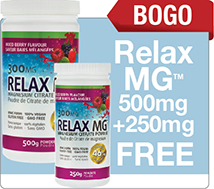- 100mg
- Thiamine (Thiamine HCI) Vitamin B-1
Cellulose, Stearic Acid (vegetable source) and Magnesium Stearate (vegetable source)
Format
 Tablets
Tablets
100 Tabs
Dosage
As a dietary supplement, take one tablet daily, preferably with meals.
Important Information
Contains no sugar, salt, starch, yeast, wheat, gluten, corn, soy, milk, egg, shellfish or preservatives.
- Supports Brain & Nervous System Health
- Gives you energy
- Helps body metabolize carbohydrates & lipids
- Enhances circulation to the brain
- Maintains function of nerve cells
Related Videos
No Related VideosArticles by a naturopathic doctor.
Since 1968 NOW has been a leader in the natural products industry. NOW Foods is an award-winning and highly respected manufacturer of vitamins, minerals, dietary supplements and natural foods. Now Foods brings you over 1600 Natural Foods, Supplements, Sports Nutrition and Personal Care Products. NOW supplements are high quality products at affordable prices.
Thiamine is a water-soluble B vitamin. It is a cofactor in many chemical reactions in the body. Thiamine enhances the circulation of blood to the brain and maintains the function of nerve cells, thus optimizing brain function and learning capacity. Thiamine also forms the blood cells and stomach acid. It helps to regulate muscle activity and ensures proper tone of the digestive tract and heart.
Energy, growth and normal appetite all depend on thiamine availability. Thiamine is also an antioxidant, which means that it protects the body from damage due to aging, alcohol consumption and smoking. It does this by neutralizing free radicals. They are unstable molecules that in their bid to become more stable must bump into healthy cells and cause damage.
All of the B vitamins work together and are best used by the body in a B complex, which is why many B complex supplements include thiamine in them. If additional supplementation of thiamine is needed it should be taken in addition to a good B complex. Most B vitamins are water-soluble and any extra from large doses is flushed out of the body easily, therefore it's best to take lower dosages of the B complex several times a day than one larger dose. Spray or sublingual forms of B vitamins are easily absorbed, as are capsules - if your digestion is healthy, then the tablet form is usually suitable for most people.
B1 is depleted by the use of antibiotics, sulfa drugs, oral contraceptives and anti-seizure medications, like Dilantin. Heavy consumption of alcohol, caffeine and sugar decrease levels of thiamine in the body.
What are B Vitamins?
B vitamins are a complex of water-soluble vitamins. They are called "B Complex" because you do not find any one of them in a specific food or living tissue without the others being present. B vitamins complement each other. They are responsible mainly for the health and maintenance of nerves, eyes, digestion and skin, as well as the processing of carbohydrates, fat and protein, growth, the production of hormones and digestive enzymes, prevention of anaemia, maintenance of the sex glands, sebaceous glands and bone marrow.
Because of their solubility they cannot be stored in the body, so whatever is not utilized is rapidly excreted. However, a certain balance is advisable making a B Complex supplement ideal rather than taking large amounts of just one or two B vitamins. The B-complex vitamins are a group of similarly structured compounds, which is why they are referred to as a "Complex" vitamin. This complex of vitamins consists of B1 (thiamine HCL), B2 (riboflavin 5-phosphate and riboflavin HCL), B3 flush free (inositol hexanicotinate) and Niacinamide, B5 (D-pantothenic acid, calcium), B6 (pyridoxal 5-phosphate and pyridoxine HCL) and, B7 (biotin), B12 (cyanocobalamine), and folic acid.
Why do I Need B Vitamins?
The Nutrition Almanac states that B vitamins "may be the single most important factor for maintenance of the nerves."B vitamins are essential for healthy skin, hair, eyes, mouth and liver. Water-soluble B vitamins are not stored in the body and must be replenished daily. Natural Factors Stress B tablets are nutritional insurance to fortify your daily diet with important vitamins and coenzymes.
Stress & Lifestyle Connection
Stress is usually thought of as a negative factor in our daily lives but it is necessary part of life. Without stress life becomes boring. The key to stress, as with everything else in life, is balance. Enough to keep you interested but not enough to become overwhelmed. Individuals have different thresholds for stress. What is seen as stressful to one person may not be stressful to another.
The result of constant stress can be tense muscles, headaches, stomach cramps, teeth grinding, decreased immunity, exhaustion and insomnia. Emotionally stress can lead to memory problems, depression, emotional outbursts and panic attacks. It is believed that constant stress is a factor in the development of many chronic diseases.
We often ignore the first signs of stress, such as headaches and insomnia, and use medication to stop the symptoms. We use stimulants, like caffeine, to allow ourselves to keep working when the body is trying to tell us to slow down. The masking of stress symptoms eventually causes the body to breakdown. The standard North American diet is deficient in vitamins, minerals and essential fatty acids. It is high in saturated fat, refined carbohydrates and chemical additives and preservatives. These substances not only do not give your body usable energy, but they also inhibit the use of good quality food by depleting enzymes and hormones necessary for energy conversion. The body must also deal with the toxic by-products of foods like bleached flour and sugar, artificial sweeteners and flavours and trans-fatty acids. All of these stressors compromise the health of an individual.
Irregular sleeping and eating patterns make one susceptible to stress related illness. Sleep is an essential component of our body's repair mechanisms. During sleep the body is in an anabolic, or building, state. It has time to regenerate cells and replenish hormones, enzymes and neurotransmitters. Insomnia prevents the repair of normal damage from the body's daily activity. The brain also requires sleep in order to process information that is learned throughout the day.
Irregular eating patterns stress the body by not providing nutrients at regular intervals. When the body is lacking nutrients it compromises the body's functioning. When an individual finally does eat the body rushes to use the nutrients and store whatever it does not need, in anticipation that the next meal may not come for a while
Lack of exercise contributes to stress by compromising the circulation of all molecules around the body, including food particles, oxygen and hormones. Circulation is also responsible for flushing waste products out of the cells and taking them to the appropriate organs for processing and excretion. The venous system contains no values so blood flow back to the heart is dependent on movement of the surrounding musculature. Exercise also removes tension from muscles and offers an outlet for unexpressed emotions.
Energy
Picture your body as a machine. In order to get your body to work your body needs fuel or food. It then transports that fuel to each cell. Inside each cell are little engines called mitochondria. They take in the fuel and process it to release energy.
The energy is used to power all cell processes and is the ultimate source of your body's energy. Another body system that impacts on energy is the glandular system. Picture it as the fuel injector of your body. It regulates what fuel gets into the body, which cells get the fuel and in what amounts. The blood cells are also a critical component of the body's energy system. They carry oxygen, a catalyst for many cell activities, around the body.
Lack of energy can be attributed to many causes. All of these causes must negatively impact on our body's ability to get fuel into the body, inhibit the mitochondria's ability to turn it into energy or alter the functioning of the hormonal and blood system.
- Reviews
- POST A NEW REVIEW





















